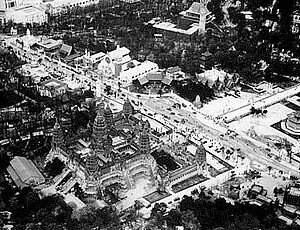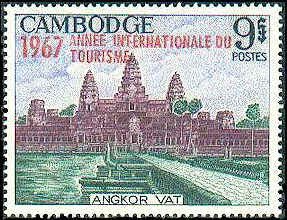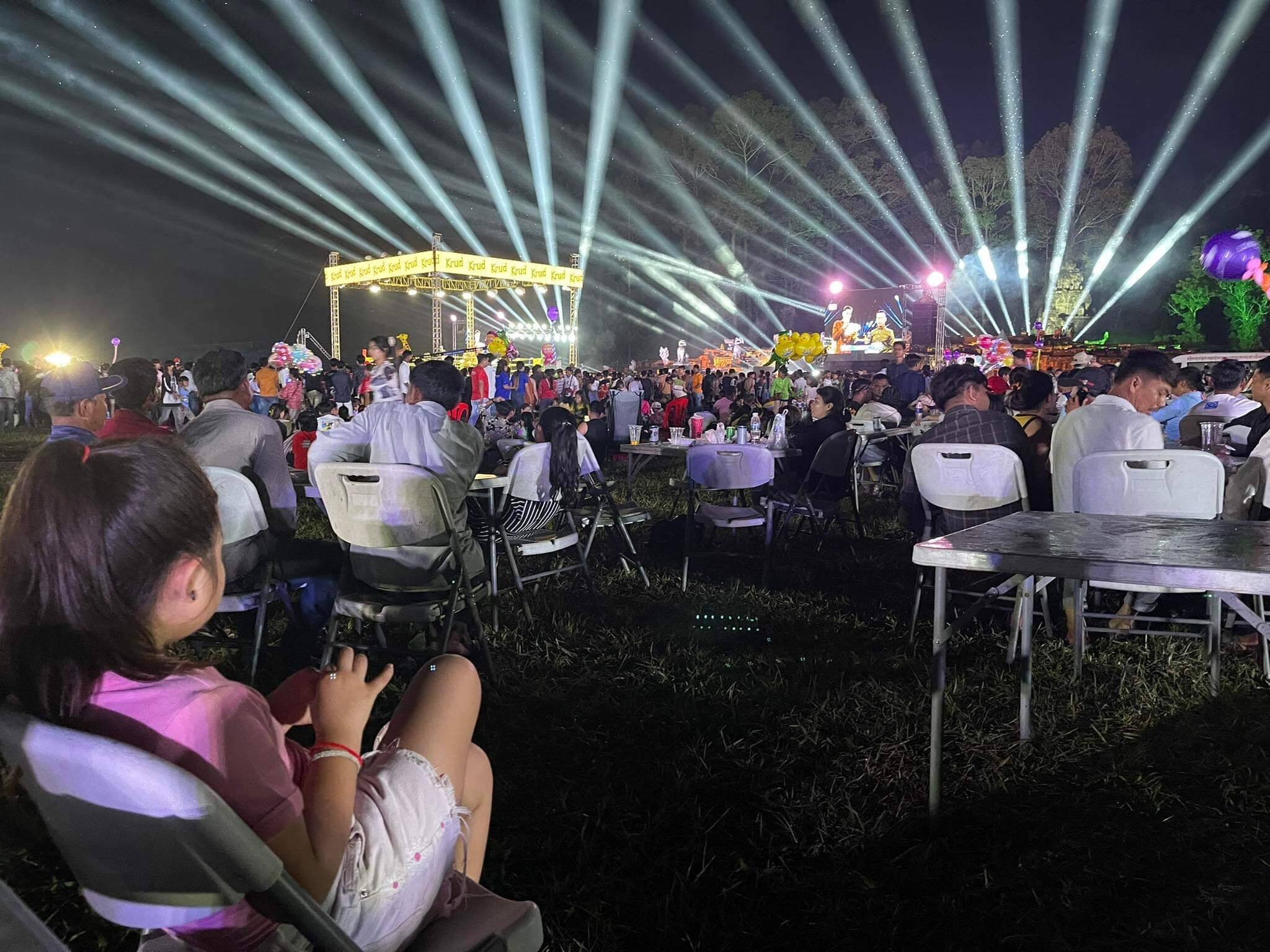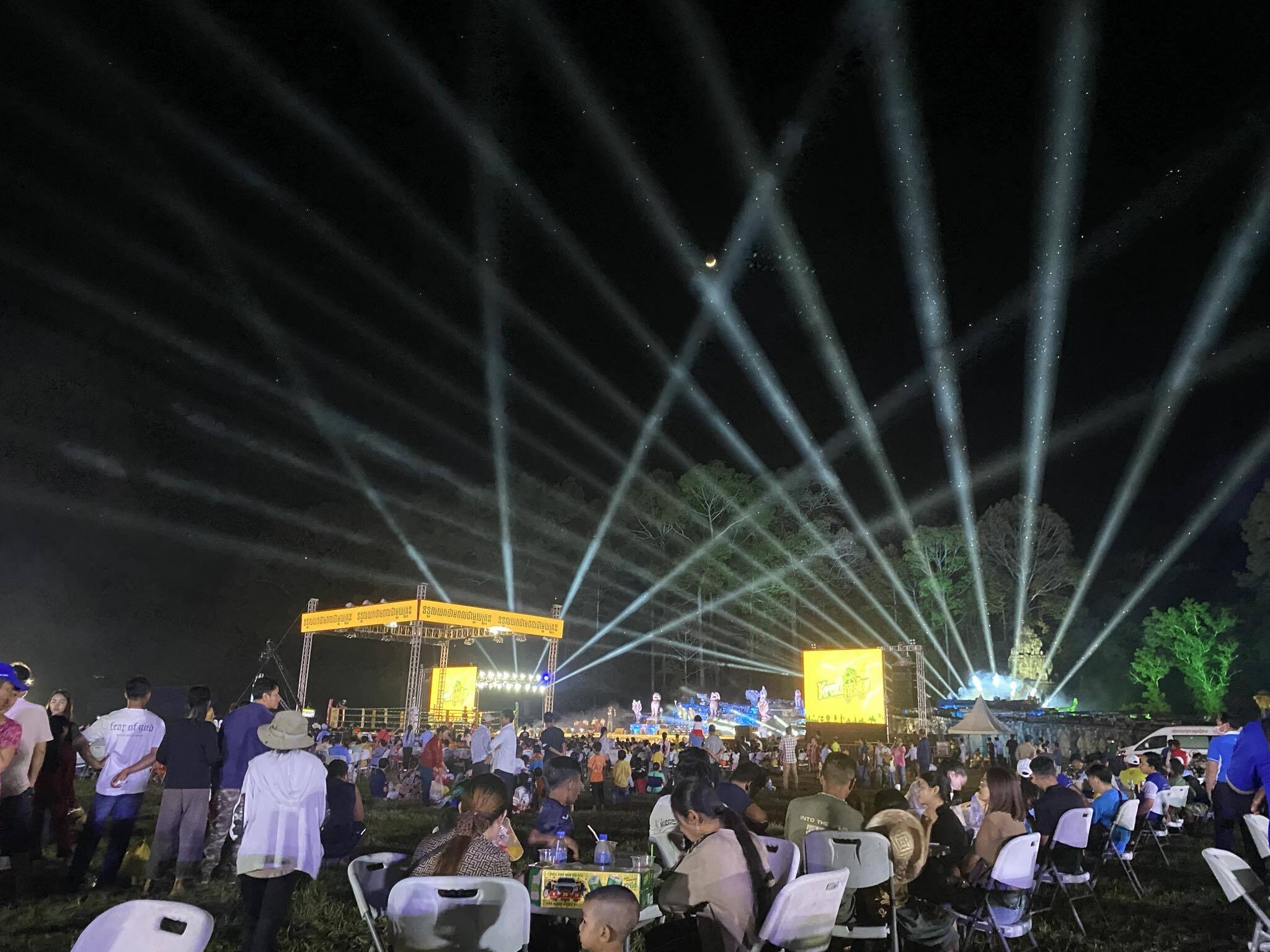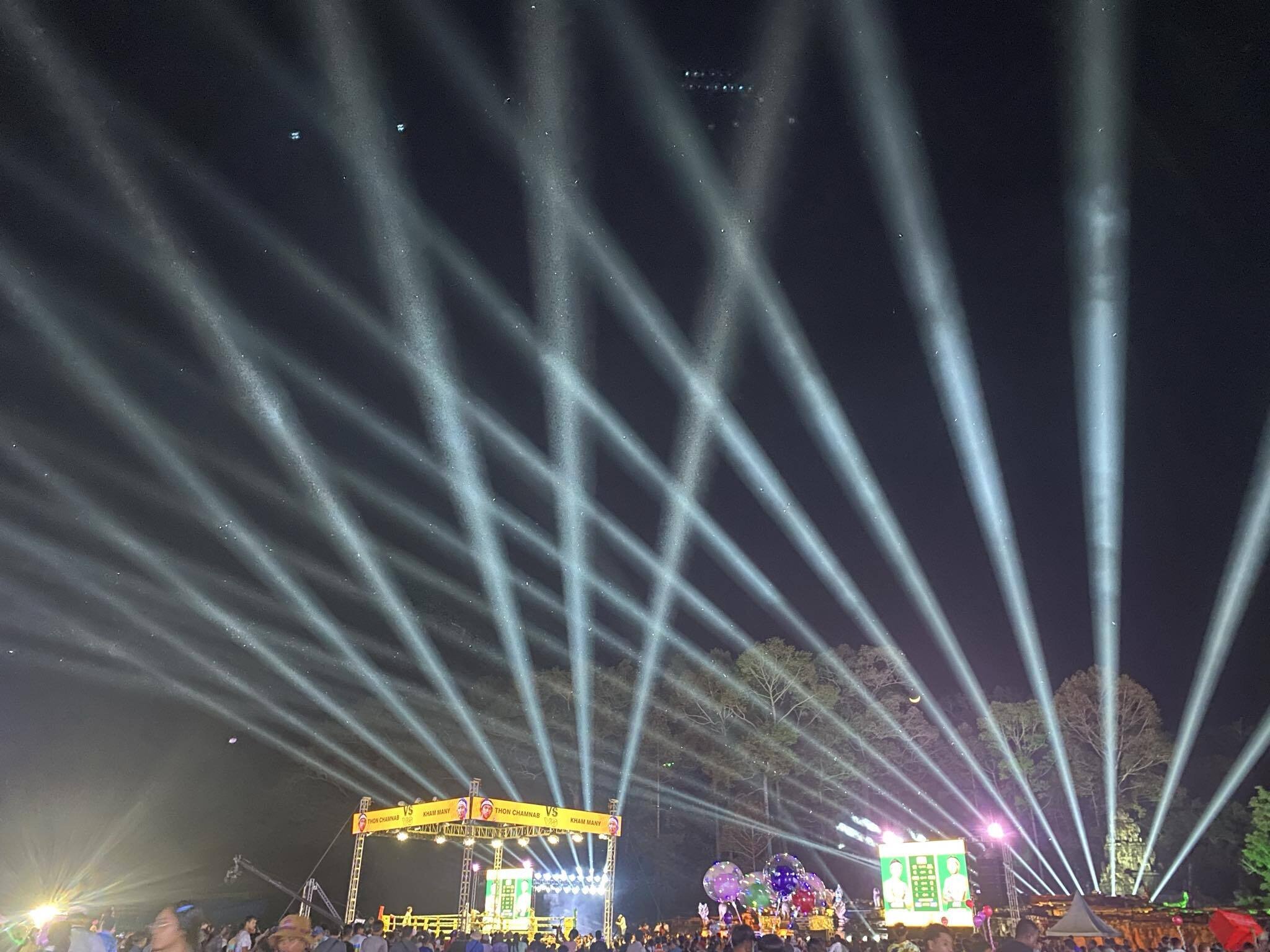Heritage as a Transcultural Concept - Angkor Vat from an Object of Colonial Archaeology to a Contemporary Global Icon
A research project on "Heritage as a Transcultural Concept - Angkor Vat from an Object of Colonial Archaeology to a Contemporary Global Icon."
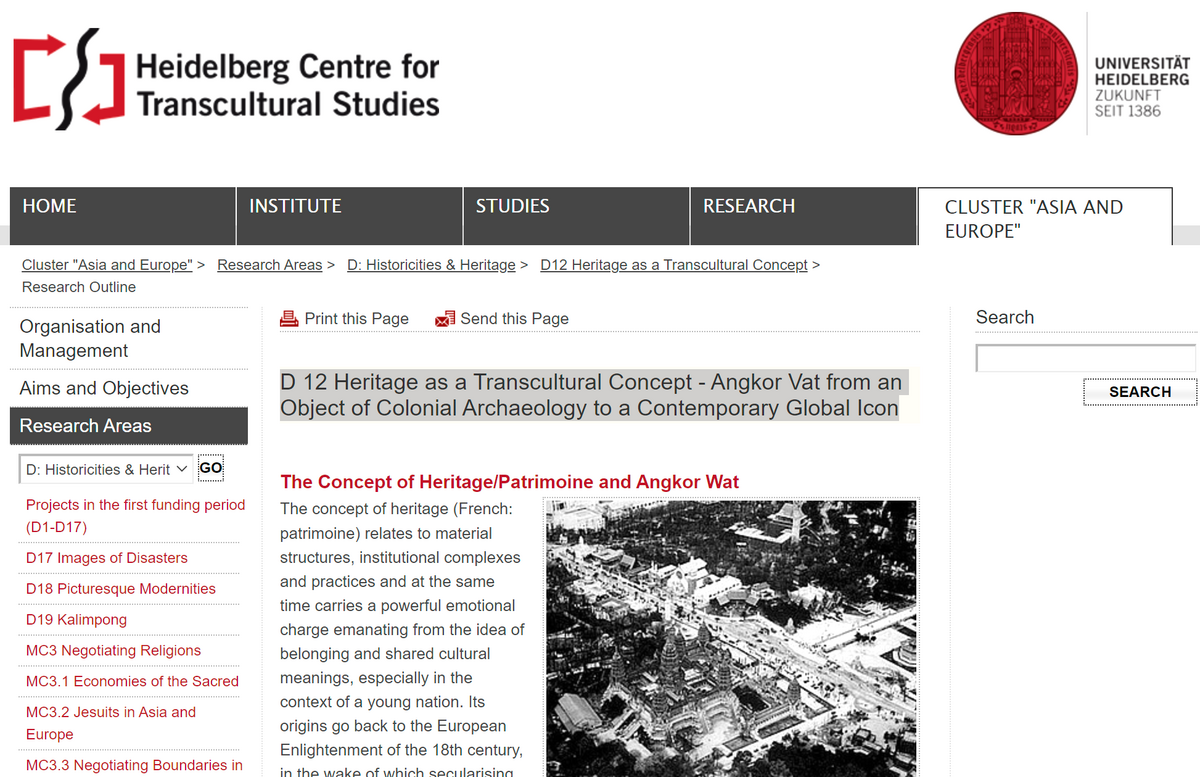
- Published
- December 2021
- Languages
- English, German
Launched by researcher Michael Falser in 2021, the “D 12” project at Heidelberg Centre for Transcultural Studies (Cluster Asia-Europe) is aimed at “a) analysing transfer, translation, exchange and – most important – hybrid innovation processes that are a product of cultural flows between Europe and Asia and b) questioning their long established asymmetries, the very nature of cultural heritage provides an ideal field for the intended methodological approach. If culture in general can be differentiated into social, mental and material aspects, the concept of cultural heritage participates in all of these three levels: At the social level it encompasses all variations of (regional, national, global) identity constructions, institution building, social practices – and the vision of cultural heritage plays a strong role in it: the identification, selection, protection, presentation and administration of which is always regulated by institutionalized authorities and scholarship (e.g. museums, research institutes, governmental conservation agencies – German: amtliche Denkmalpflege). As a mental construct culture comprises values – and the quality label (national, colonial, universal) cultural heritage is a normative projection in the name of “authenticity” that itself dominates preservation and conservation norms, standards and real actions on site. Material culture comprises artefacts including architecture – and historic monuments are a selection of the built environment to be protected by practices and techniques of preservation/conservation.”
We humbly suggest to add two topics to this important research:
- How Indian tourists, in growing numbers, relate to Angkor as an inventive, original take from Hindu principles on architecture and city planning?
- Since Covid-19 crisis, there was a palpable change in the way Cambodian people relate to Angkor Archaeological Site. Festival after festival, commemoration after commemoration, the site is asserting itself as a major cultural, religious, and popular places for Cambodians, who for decades were taught it was a “tourist destination”. This major shift in collective perception is quite unprecedented, and needs to be researched. We are sure Apsara Authority (ANA) will provide studies and data about it.
Tags: museology, heritage conservation, Angkor Wat, crosscultural studies, post-colonial Cambodia, material culture, history, echoes of Angkor, tourism

